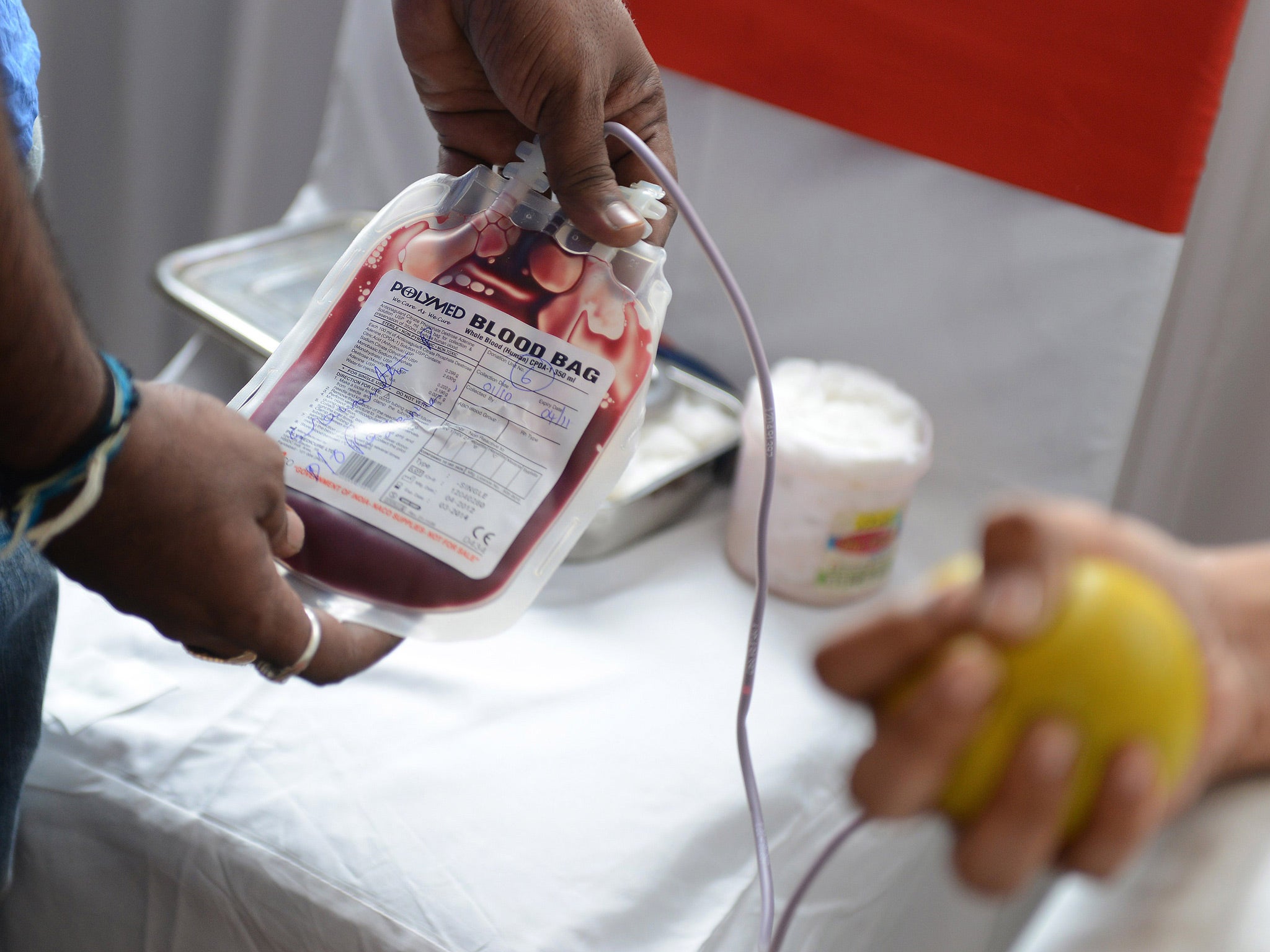NHS calls for rare blood group donors at O and B negative stocks hit four-year low
Plea for people with blood groups O and B negative to donate

Your support helps us to tell the story
From reproductive rights to climate change to Big Tech, The Independent is on the ground when the story is developing. Whether it's investigating the financials of Elon Musk's pro-Trump PAC or producing our latest documentary, 'The A Word', which shines a light on the American women fighting for reproductive rights, we know how important it is to parse out the facts from the messaging.
At such a critical moment in US history, we need reporters on the ground. Your donation allows us to keep sending journalists to speak to both sides of the story.
The Independent is trusted by Americans across the entire political spectrum. And unlike many other quality news outlets, we choose not to lock Americans out of our reporting and analysis with paywalls. We believe quality journalism should be available to everyone, paid for by those who can afford it.
Your support makes all the difference.The NHS is calling on people with blood groups O and B negative to donate blood, as stocks hit a four-year low.
NHS Blood and Transplant (NHSBT) singled out blood group O negative as “vital” as it can be used for people with any blood group in an emergency situation.
Around 7 per cent of the UK’s population is part of this blood group, while 12 per cent of the blood issued to hospitals for patient use is O negative.
Group B negative blood is needed for ethnic minorities and can also be issued to people with group B positive blood.
Only 2 per cent of people in the UK have type B negative blood, but in the last four weeks hospitals have used 6 per cent more of this blood type than in the same period last year.
NHSBT, which collects blood from donors across England and North Wales, said certain ethnic groups are more prone to particular diseases that require blood, such as sickle cell anaemia in which misshapen blood cells can clog sections of blood vessels, and that a higher proportion of these ethnic groups are blood group B.
Red blood cells have a shelf life of 35 days, and NHSBT said it aims to ensure there is constantly a healthy supply of each blood group.
However, as the overall requirement for blood from hospitals across England and the North of Wales has fallen in recent years, the pressure for different blood groups has varied, and stocks of types O and B negative are be at their lowest levels for four years.
Jon Latham, assistant director for marketing at NHSBT, said the stocks for O and B negative blood groups are “lower than we would like them to be,” calling for donors to come forward.
He said: “We constantly monitor donations and blood stocks for all blood groups throughout the year to ensure that we have enough blood to meet the demand of hospitals and patients, and have adequate contingency stocks.”
Join our commenting forum
Join thought-provoking conversations, follow other Independent readers and see their replies
Comments